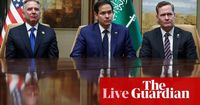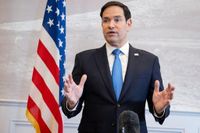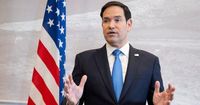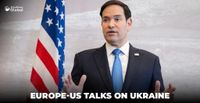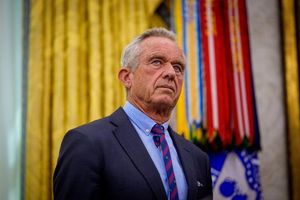In a pivotal diplomatic effort, U.S. Secretary of State Marco Rubio and White House envoy Steve Witkoff are set to meet with European leaders in Paris this week to address the ongoing war in Ukraine and the pressing concerns surrounding Iran's nuclear program. The meetings, scheduled for April 17, 2025, come at a time when the Trump administration is increasingly frustrated with the lack of progress towards a peace deal in Ukraine, which has been embroiled in conflict since Russia's invasion in February 2022.
Rubio and Witkoff's agenda includes discussions with French President Emmanuel Macron and French Foreign Minister Jean-Noël Barrot. They will also engage with counterparts from Britain and Germany to align U.S. and European strategies to resolve the Ukraine crisis and prevent further escalation in the Middle East.
"I’m just trying to get it stopped so that we can save a lot of lives," Trump remarked during a recent press briefing, highlighting the urgency of the situation. The ongoing violence has drawn international condemnation, especially following a recent Russian missile strike in Sumy that resulted in civilian casualties, including deaths among Ukrainian Christian worshippers.
The upcoming talks in Paris are significant as they reflect Europe’s growing concern over the U.S. administration's approach to Russia. European leaders have expressed skepticism regarding Trump's overtures to Russian President Vladimir Putin, particularly amid ongoing hostilities. Polish Foreign Minister Radoslaw Sikorski articulated this sentiment, suggesting that Trump and his administration need to recognize Putin's disregard for diplomatic gestures.
During the Paris meetings, Rubio and Witkoff are expected to hear European leaders' concerns regarding Russia's actions, particularly as U.S. efforts to negotiate a ceasefire have so far been met with resistance from Moscow. Witkoff, who recently met with Putin, expressed cautious optimism, stating he still sees a peace deal "emerging" despite the challenges.
In addition to discussions on Ukraine, the U.S. officials will address the deteriorating situation surrounding Iran's nuclear ambitions. Following recent indirect talks between the U.S. and Iran in Oman, both sides described the discussions as positive, yet acknowledged that a formal agreement remains elusive. Trump has indicated a willingness to take military action against Iran's nuclear facilities should negotiations fail, intensifying the stakes in the region.
As the U.S. administration seeks to restore its "maximum pressure" campaign against Iran, which was initiated after Trump abandoned the 2015 nuclear deal, the implications for regional stability are profound. Trump's assertion that Iran is intentionally delaying negotiations adds another layer of complexity to the situation.
In a related development, a high-level Ukrainian delegation has arrived in Paris to advocate for their nation's interests. Led by Andriy Yermak, chief of staff to President Volodymyr Zelenskyy, the delegation includes Ukraine's foreign and defense ministers. They aim to persuade U.S. and European officials to adopt a firmer stance against Russia, emphasizing the need for a complete ceasefire and the potential involvement of a multinational military contingent to ensure lasting peace.
Ukrainian Foreign Minister Andrii Sybiha articulated the importance of these discussions, stating, "The parties will discuss ways to achieve a complete ceasefire, the involvement of a multinational military contingent to guarantee sustainable peace, further development of Ukraine's security architecture and ensuring the security of our country." This underscores the urgency with which Ukraine is approaching these diplomatic talks.
As the situation unfolds, the humanitarian crisis in Gaza remains a pressing concern, with reports indicating that the region is facing its worst crisis since the onset of conflict in October 2023. The UN has highlighted the dire conditions, exacerbated by the blockade of humanitarian aid. This context adds another layer of complexity to the discussions taking place in Paris.
French Defense Minister Sébastien Lecornu is also expected to meet with U.S. Defense Secretary Pete Hegseth in Washington, further emphasizing the interconnectedness of these global issues. The outcomes of these discussions could have significant implications for U.S.-European relations and the broader geopolitical landscape.
The diplomatic meetings in Paris represent a crucial juncture in addressing the multifaceted challenges posed by the war in Ukraine and the threats emanating from Iran. As both U.S. and European leaders engage in these high-stakes conversations, the world watches closely, hoping for tangible progress in resolving these conflicts.
In summary, as Rubio and Witkoff prepare for their meetings in Paris, the stakes are high. The outcome of these discussions could not only affect the immediate future of Ukraine and Iran but also reshape the dynamics of international relations as the world grapples with the consequences of prolonged conflict.
